 Monday 19th July is “Freedom Day” for us Brits as the final (?) Covid restrictions are lifted so we can return to “normal” once again. OK, not quite all restrictions; there are still plenty of confusing rules about foreign travel and what you need to do in terms of testing and self-isolation, but aside from that, the rules are being lifted. I put ‘normal’ in quotes because what is normal for me may not be normal for you and vice versa. That’s the problem with normal – it isn’t normal for everyone. And with some confusion around what we should be doing, what we can legally do and what the government is advising us to do it is likely that there are going to be many versions of ‘normal’.  I’m not going to comment on the wisdom of the decision to lift restrictions as I’m not an expert in virology or the management of pandemics. I understand the arguments for and against, but that doesn’t mean I’m best placed to judge whatever decisions have been reached. I know there are economic benefits to be gained from the decision and I know there are health risks. I’m a big boy now and capable of managing the risks for myself, so I don’t need the government to treat me like a baby and tell me what to do all the time. If I don’t know by now what sensible behaviour is in relation to this virus, then it’s unlikely that I ever will. But I also wish that the same could be said of everyone.  But this moment provides an opportunity to reflect on how my life has been affected over the past 18 months and how it has changed – if at all. It is a strange thing about humans, but as soon as you tell us we can’t do something, we all want to do that very thing. I have had conversations with people who complained about not being allowed to go to a pub, knowing full well that they hadn’t set foot inside a pub for years. The same applied to people who hadn’t set foot inside a gym for years (if ever) as well. When I explained to one acquaintance that it was possible to exercise in your own home, I was told it wasn’t the same as there was no one there to motivate you.  I have no idea what gyms she went to (none I suspect), but I have never been to a gym where anyone ever came along and tried to motivate me. If you attend classes with a fitness trainer at the front, that is different. But if you go to a gym just to use the equipment then you are very much on your own, motivation-wise. Personally, I found Joe Wicks quite capable of motivating me while I remained in my own living room. In terms of my own life, very little changed. I’m an author. I spend hours everyday in my office (my wife calls it the ‘front bedroom’) tapping away on a keyboard. That didn’t change. I also spend a lot of time reading, for pleasure and for research. That also didn’t change. I am also a publisher, so I spend a lot of time reading and editing the work of other authors and marketing our books. That, too, didn’t change. So, on 19th July, a lot of my life isn’t going to change back to what it was before, because it didn’t change when the pandemic started anyway.  I realise that I’m not typical of the great British public. Many people’s lives changed in big ways during the pandemic and they will continue to feel the impact of those changes for a long time after the 19th. For some it provided opportunities, for others it imposed restrictions. For some it provided a stimulus for change and for others it placed them in a sort of prison and for some it meant the tragic loss of a loved one. We all live different lives and, consequently, we were all affected in different ways. There were things I missed in my life. There were the big, family things, like not being able to visit my family and see my grandchildren. Some were able to come and stand outside the front door while we exchanged news, but you would hardly call that a ‘family get-together’. It has made me more determined to see them more frequently. I’m not sure if that is good news for them or not. I missed not being able to play golf for several months at a stretch. I’m not a very good golfer, but it forms an important part of my social life. Not being able to go around a golf course and enjoy the sort of chit-chat that golfers indulge in left a bigger hole in my life than I expected. Even on the wet, cold days, when I wouldn’t normally have played, I found myself staring wistfully out of the window wishing I could go out and play a few holes in good company.  I missed not being able to go to watch my local rugby team play. For 8 months of the year my weekends are dominated by the sport and not being able to go along to Franklins Gardens to watch Northampton Saints play was, perhaps, the largest inconvenience after not being able to see my family. It was even worse when the clubs weren’t even allowed to play the sport and we had to make do with watching re-runs of previous seasons’ games on YouTube. Sport actually forced a change in my behaviour. When the rugby re-started, but fans couldn’t attend matches, I finally bit the bullet and took out a subscription with a streaming service so that I could follow my team’s progress live on TV. Having done that, I had to get value for my money, so I watched a whole load of other matches being contested by rival clubs. So I’m now watching far more rugby than ever before. Well, not at the moment because the club season has ended, but I’ll be maintaining my subscription for the new season so my weekends will now be even more dominated by rugby.  Last year we had to cancel three holidays, one to Prague, one to Spain and one to Croatia. Only one of those was I really disappointed about, because the Spain trip was to visit my sister, who lives there. I don’t see a great deal of her because of the distance, so to have that taken away was a bit emotional. But the other two trips I felt no sense of loss over. They were for pleasure – a nice break from routine – but they held no emotional context so there was no sense of loss. We’ll head off there at some point, when we get around to it, but this year we’re actually booked to go somewhere else and hopefully we’ll be allowed to do so. But if we aren’t, it won’t be a tragedy. Besides, even if we have to self-isolate on our return, that won't be a big deal (see above for reasons why).  To the outsider, perhaps to you, it may make you think that my life is boring. Well, for you it may be, but for me it has all I want and need. I am a man of simple pleasures. I have my work, I can see my family, I can play golf and I will be able to watch rugby when the new season starts. My health is pretty good (for my age) and I’ve had both my jabs, so I’m quite well protected against Covid unless a jab resistant variant turns up (which is a possibility). All being well we will be able to travel abroad this year. I don’t need anything more than that. Not really. If you have enjoyed this blog or found it informative, or you want to keep up with our future publications, just click the button below to sign up for our newsletter. Go on - you know you want to!
0 Comments
 Science fiction and fantasy – are they really the same thing, but just with a bit of a twist? Let’s take a look at the differences – and the similarities. Both of them often feature worlds that don’t exist in reality, at least, not so far as we know. Both of them usually feature “magic”. In sci-fi they call this magic “technology”, but if it doesn’t actually exist then it might as well be magic. Both of them use strange creatures as part of the plot. In fantasy those creatures are elves, orcs etc and in sci-fi they’re alien beings or mutated viruses, but they are both the result of imagination, not reality. 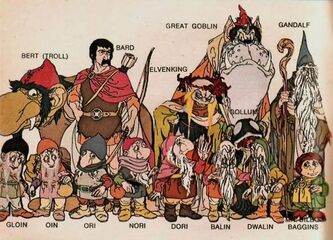 If you read our submission guidelines you will find that we don’t encourage authors to submit fantasy novels, but we’re happy enough with sci-fi. Given what we have said above, why would we not accept both – or neither? The author of this blog has read Lord Of The Rings (LOTR) three times and The Hobbit twice, so why does he have a downer on other works in the fantasy genre? It’s because so many authors of the fantasy genre write in clichés, or they are lazy.  Let’s take the clichés first. Orcs, elves, wizards, dragons, magic rings or swords. Does any of that sound familiar? About the only thing that’s original in so many fantasy novels are the names that are given to the main characters and, I have to say, even those have a very familiar ring to them most of the time. So, what about that accusation of laziness? Most of it is to do with the way magic is used in the books. Is the hero stuck at the bottom of a deep pit? Magic him out of it. Is the hero just about to be barbequed by a dragon? Magic him out of there. In fact, any peril that the hero finds him/herself in is fixed by the use of magic. And if it isn't magic, it's other special powers such as being able to see events far away or see into the future. 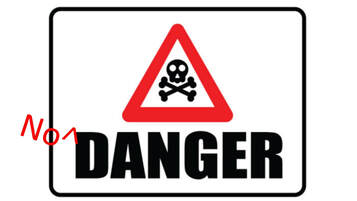 And that removes the drama. Once you know the author is going to save the hero’s life every time, using magic, there’s nothing to worry about. All tension is removed and the story becomes about as exciting as watching paint dry. The lazy author, therefore uses magic rather than trying to imagine some other way of allowing their hero to survive – or going back to re-write the plot in a way that no longer relies on magic to get the hero out of their fix. Ah, but LOTR uses magic. Gandalf’s a wizard and he uses magic a lot. And as for that ring – it’s total magic. Therefore, Selfishgenie Publishing, your argument is defeated. 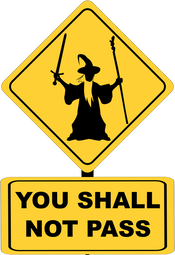 Yes, but think about how magic is used in LOTR. First of all, it is used very sparingly. If the problem can be solved using swords or guile, then swords or guile are used. Magic is always the weapon of last resort. But, more importantly, whenever magic is used, there is a price to pay. When Gandalf uses magic to fight the Balrog, it so exhausts him that he disappears from the book for a couple of hundred pages. When the ring is used to provide invisibility, not only does it place a great burden on the wearer, but it affects their personality. That is made very clear in The Hobbit, where we encounter its long-term user Gollum and at the start of LOTR with the way Bilbo reacts to having to give up the ring. 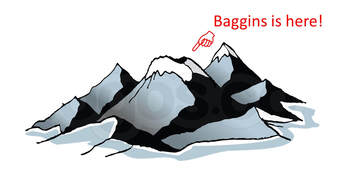 The ring also points a big fat finger at the wearer so that the Dark Lord can locate them. So, the ring and its powers have to be used sparingly. It is Frodo’s and Sam’s perseverance that gets them to Mount Doom in the end, not magic. It is about Frodo’s personal qualities, about why he was chosen for the task in the first place because, despite all temptations, he is the only one of the Fellowship of the Ring that can be trusted not to try to keep it for himself. Of course, there are fantasy writers out there who avoid both the clichés and the over-use of magic and rely on their characters to carry the plot, but we have to say that bitter experience has shown that they aren’t the authors who are submitting to Selfishgenie Publishing. You can try to prove us wrong, if you want, but excuse us while we roll our eyes.  So, what of sci-fi, surely it is just as full of cliches, yet we publish that. Substitute magic for non-existent tech and you have the same sorts of problems. Of course we do, guilty on both counts. Which is why we have just as much of a problem with poor sci-fi as we do with poor fantasy. However, some of the sci-fi authors we publish have actually tried to base their “magic” on basic scientific principles.  Reputable scientists have theorised about the sort of technology that is used in their books and suggested that it might be possible to create that sort of technology sometime in the future. No less figures than Einstein, Steven Hawking, Erwin Schrodinger and others have speculated on what sort of advances in science might be made to allow the use of new technology in the future. Not only have they speculated, but serious research is now going on into some areas of science that were previously labelled “fictional”. OK, some of it may never produce any worthwhile results, but the research isn’t being done on a whim. There are some basic scientific principles underpinning it.  And, of course, after the last 18 months, when it comes to killer mutant viruses we need say no more. And if you can have mutant viruses, you can surely also have mutant people. Now, please don’t get us wrong. We think that fantasy is a legitimate genre for any author to write in. The best fantasy sits alongside the best works of all the other genres. But, unfortunately, the sorts of authors who submit fantasy to us seem to lack the imagination to come up with anything original. And it is originality that sells books. Now, having read this far you may now be saying "That's just your opinion", and you will be right. But if you had to read the amount of cliched fantasy that we receive, you might share our opinion. If you have enjoyed this blog and want to make sure you don't miss future editions, plase sign up for our newsletter by clicking the button below.  Have you submitted your book to agents or publishers and had it rejected? Have you ever asked yourself why your masterpiece was rejected? After all, you have read far worse books than yours, so why wasn’t your much better book accepted? Have you ever thought that it might be because you didn’t adhere to the submission guidelines? As publishers we receive a lot of submissions and one of the things that puzzles us the most is how someone who can write a 100,000 word novel can’t read a simple set of instructions.  You may wonder why adhering to the submission guidelines is so important. After all, it has nothing to do with the quality of your work. Your masterpiece will still be a masterpiece, even if you didn’t double space it, as the submission guidelines asked you to. We’ll answer that in this blog. Our submission guidelines are published on our “Contacts” page of this website. They are longer than they are for some agents or publishers. That’s because we’re trying to be helpful, so we tell authors in advance why we might not accept their masterpiece. That gives them the opportunity to take a look at what they have written and decide what sort of a chance they have of being accepted if they submit their work to us. We may not actually be the right publisher for them, so why waste everyone’s time?  But even if we are the right publisher, are they the right author? We have no way of knowing without setting them a little examination – but here’s the trick – we also provide the answers to the exam questions. And that makes it much harder for authors to fail. So why do so many authors send us into apoplectic fits of rage by not reading the answers? OK, I’m exaggerating for comic effect, but it is very frustrating when you open a submission and find, not the 10,000 words that were asked for in the guidelines, but the whole (expletive deleted) manuscript. And it's double line spaced when we asked for something else. I have actually emailed an author and asked him why he didn’t read our guidelines. He replied to say that he did read them. So I then asked him why, having read the guidelines, he had decided to ignore them. He replied that he didn’t think we were serious and they were just to discourage authors from making submissions. Yes, that’s right, we spend hours making things up just so we don’t have to read submissions. That’s how we stay in business, by not having any new material to publish. (sarcasm).  I didn’t use the word “examination” above by accident, by the way. So why did I use it? When you submit a book to an agent or publisher, it ceases to be “your book”. The act of submission turns your work into a collaborative project. Your name will still be the one on the cover of the book, but it won’t get to the bookshops without a lot of teamwork between you and the publisher. So, when you submit the book, the agent or publisher wants to know if you are the sort of person with whom it is going to be easy to collaborate. Trust us on this, but no author ever submits a book that is ready to go straight to press. They all require some degree of work to turn them from what they are into something that the readers will want to buy. The only difference between submissions by different authors is the amount of work needed to get from A to B.  The greatest authors ever to put words onto paper have gone through this process before you, so don’t think you are some sort of special case or genius who can go straight from submission to publication without stopping to do a few re-writes along the way. That’s where the publisher has to start spending money – without knowing if they will ever get any of it back. A publisher will pay an editor to work with you to make your book the best it can be, and that editor will earn between £20k and £40k per year. Freelance editors start at around £25 per hour, charging up to £54 per hour if more specialist services are needed. (comparable rates apply in other countries). That may well be more money than you, the author, will receive in royalties. So, the publisher (and the agent who will try to find you a publisher) wants to know if you are going to work with that editor, or work against them. Is it worth them spending £5k to £10k of an editor’s wages working on your book with you if you are going to ignore everything the editor suggests? "If you can’t be bothered to read the submission guidelines, are you really going to read the editor’s notes?" 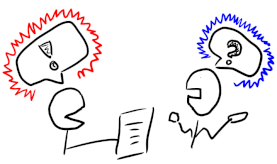 Someone, I don’t know who, once said “You only get one chance to make a first impression.” Your submission is your only chance to make that first impression. What the agent or publisher sees when they open up your manuscript is when that first impression is made. If it is the right length and formatted the way the agent or publisher has requested it, they are going to start to think of the author in a positive way. If they asked for a synopsis but you didn’t provide one, then you probably didn’t read the guidelines, or you decided they didn’t apply to you. If they asked for a biography but you didn’t include one, they will wonder why you didn’t. If you haven’t done those things, the negative thoughts will start, which means the author’s work has to be so much better than the average before the agent or publisher starts to move across to having more positive thoughts.  So, we have devised an additional test for our authors. We don’t insist that authors use our formatting guidelines, we just suggest that if they want to impress us, they should use them (item 6 if you decide to read them for yourself). If the author responds to our suggestions, they get off to a good start with us. If they just submit the MS formatted the way they wrote it, then the start isn’t going to be such a good one. So, for your own good, if you are going to submit your work to an agent or publisher, please read and follow the submission guidelines because first impressions count for so much. After that, your writing talent will do the talking for you. Don’t get me wrong. The agent or publisher won’t make a final decision based on whether you have used the right line spacing or the right font. If the story is good enough it could be written on a brown paper bag with a blunt crayon and it will still be accepted. But if you want the agent or publisher to be on your side from the moment they receive your submission, you have to do what is necessary to get them there, by following the submission guidelines. And if you think following submission guidelines is for losers – good luck with your career in pizza deliveries. If you have enjoyed this blog, or found it informative and you don't want to miss future editions, just click the button to sign up for our newsletter. Don't Just Suffer - You Can Do Something About Writer's Block! Is writer’s block a real thing? Or is it something that people have invented to account for their lack of progress as a writer? Personally, I have always thought that writer’s block was something that was invented for the script of a stage play or movie as a way of getting a character, who is an author, out from behind their desk and into the world so they could have an adventure. But was I right? As I have a bit of a background in psychology, I went looking for a psychologist who could answer this question. Sadly, there hasn’t been much research done in this area. Most commentators seem to regard writer’s block as a blockage in the creative process and the way to treat it is the same as a plumber would use to unblock a pipe. But there are a couple of bits of research that suggest this approach is wrong. This is one of the research articles I found. This is only the “abstract” for the study, but it does provide the key messages.  Treat it the way a plumber treats a blocked pipe! Treat it the way a plumber treats a blocked pipe! While it concludes that writer’s block is real (yes, I was wrong - who could imagine that?), it doesn’t find that the creative process itself is the cause. The likely causes are much deeper rooted than that. It could be the way sufferers were taught to write, way back when they first started school. It may be caused by external pressures such as deadlines or feelings of being controlled, or feelings of not being in control. It could even be caused by a fear of being criticised. Yes. If you are anxious about what people might think of your writing, it may prevent you from writing in the first place.  Worst case scenario - you might need therapy. Worst case scenario - you might need therapy. So, if you suffer from writer’s block it isn’t about not having a good idea for a plot, or that you can’t develop your characters, or you can’t find the right word to describe the particular sort of rain that is falling. It may be because you had an overly controlled environment when you were first learning to write your name, which has carried forward into adulthood and you now worry about what your 1st grade teacher might think of what you are now putting on paper. So, this is a psychological issue, not a creative one. To treat it, you have to identify the cause and work it out of your system, so it no longer affects your writing. In the worst case scenario it might involve therapy, but for most people it probably just means acknowledging that there is a problem and finding ways round it. Living in the present, rather than the past or the future, is a good first step.  Overly controlled environment when your were learning to write your name Overly controlled environment when your were learning to write your name Looking at social media, I have observed that anxiety about whether someone’s writing is “good enough” is a common theme. In post after post, writers are seeking affirmation that their work is of value and of a good standard. Such reassurances are given but, of course, they are meaningless if the person giving the reassurance hasn’t actually read the work itself. And I think these worried writers know this, which is why the question occurs so often. But what about deadlines and control? They are one of the causes of writer’s block that have been identified. Deadlines are particularly ironic, in that the need to meet a deadline is, potentially, the cause of it not being met. The way around that one is for the writer not to agree to unrealistic deadlines, then for them to manage their time appropriately so they are able to meet the realistic target date. The journey of a thousand miles begins with a single step and it is taking that first step that is the important part of the journey – not the final step. Take control of the process and retain that control throughout.  A lack of feeling of control is a major cause of stress in any environment. It has been cited as the cause for so much stress and as a trigger for depression. People who read or watch a lot of news, for example, are likely to suffer a higher level of stress because they start to worry about events that they are reading about or watching, but which aren’t within their control. Knowing that, I find it unsurprising how some of the exchanges on social media become so toxic. “Pick a side” is now the order of the day, but picking a side is likely to cause stress unless it can directly impact on the issues in question. And no, posting about an issue on social media isn’t activism. If anything, it is passivism because it doesn’t require anyone to actually do anything. If nobody has to do anything then change doesn’t happen so the feelings of lack of control are amplified, creating more stress  "WHY AREN'T YOU LISTENTING TO ME!?" "WHY AREN'T YOU LISTENTING TO ME!?" So, the stress of not being able to change someone’s mind through posting on social media comes out in the toxicity of the posts themselves. Effectively it is people screaming “Why aren’t you listening to me!” into a complete stranger’s face. If you feel stressed after being on social media, it is no surprise and the best thing you can do about it is not go on social media. But then you’ll experience FOMO* and that creates more stress. That is an extreme example, of course, but the same generic symptoms are to be found in writer’s block, with tight feelings in the chest or stomach, feelings of anxiety, insomnia, irritability, panic attacks et al caused by the feeling that the writer isn’t in control of what they are doing. BTW, you don't have to pick a side. No, really, you don't. If people try to force you to pick a side, it is for the benefit of their agenda, not yours.  You have to choose to change. You have to choose to change. But there are things that can be done to deal with that stress and by dealing with the stress, the writers can then focus on what actually matters, which is the creative process. There are a number of blogs on ways of dealing with writer’s block and they all say pretty much the same thing. So, if you’ve already read those, don’t think you’re going to find any greater enlightenment here. But if you’ve read those blogs and you’re still suffering from writer’s block, it means you haven’t heeded the messages and are still trying to find the “silver bullet”. Bad news - there isn’t one. Changing your behaviour is the only way to overcome writer’s block. And if you don’t want to change your behaviour, you’ll have to learn to live with writer’s block and being an unproductive writer. If you always do what you always did, you'll always get what you always got!" (Henry Ford). So, for those of you who want to change your behaviour, what can you do?  Stay off social media Stay off social media Stay off social media when you are trying to write. This may not be what you want to hear, but it may be what you need to hear. First of all, social media is a distraction and when you are trying to achieve anything (not just writing) you don’t need distractions. Secondly, so much that is seen on social media is negative and negativity is a great source of stress, which is the enemy of creativity. If you must have a daily fix of social media, leave it until after you have finished writing for the day. You might even treat it as a reward for a good day's work.  Get some exercise. Not only does exercise reduce stress, it also produces endorphins which make you feel better. They also stimulate mental activity. Aerobic exercise is best, but any exercise is better than none. Do something different. Instead of wrestling with the same problem over and over again, do something else. Another creative activity is good (drawing, music, cooking etc), but it doesn’t have to be. In fact, mundane, repetitious tasks leave the brain free to process other stuff. Those naff colouring books for adults that were all the rage a couple of years ago may actually be the cure for your writer’s block. But you could also try gardening, cleaning the house or washing the car.  Do something different Do something different Change your location. Many writers go to “retreats” or have a cottage in the country where they write, but it doesn’t have to be that grand (or expensive). Just taking your laptop to the coffee shop or the park can be enough of a change to take your mind off the blockage and allow ideas to flow instead. Don’t try to write your book, try to write something else instead. You’ll find thousands of writing prompts on the internet that you can use to stimulate the writing juices. Once you have started writing on an unrelated subject, it becomes much easier for the brain to stay in writing mode and allow you to move smoothly onto your book. You don’t even have to start a fresh page or open a new file. Just keep writing and edit out the irrelevant stuff (which actually got you started) afterwards. Don’t beat yourself up. You are human and suffer human frailties. If you can’t write today, there’s always tomorrow. Simply forgiving yourself is sometimes enough for your brain to say “Thank you. Now, I’ve had some thoughts about the start of chapter 15.”  Just do nothing Just do nothing Do nothing for a while – and I do mean nothing. Yes, staring off into space helps. Your brain will try to fill the gap in conscious activity and it may well fill it by giving you ideas about your plot. It’s far less stressful than pacing up and down worrying over the fact that you can’t come up with an idea. It's why we often have bright ideas while we're asleep or about to fall asleep. Cut yourself off from distractions. If you are stressed by the hubbub around you, it is harder to concentrate on what you should be doing (this applies in any workplace). If you can’t get the people out of the house, get yourself out instead. Libraries are nice quiet places to work, so take your laptop or tablet and visit yours. Change your habits. If you are struggling to write in the morning, switch to the afternoon, or the evening and vice versa. The time of day you work best is affected by your circadian rhythms so if your working times are out of synch with your “body clock” you are going to be less productive and less creative. This is hard if you have a “day job” as well as being a writer, but it may be necessary. It’s why some authors become successful only after they take the big gamble and quit their day job. (Just to be clear, we ARE NOT recommending you quit your day job) 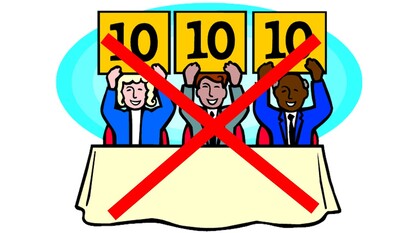 Your book doesn't have to be perfect at the first attempt. Your book doesn't have to be perfect at the first attempt. Don’t try to “binge” write. Stop writing at a point that is natural, such as the end of a paragraph, scene or chapter, rather than setting a finish time or a word count target. You’ll feel less pressure, which will allow your mind to do what you want it to and be creative. Conversely, if you are “in the zone” and the words are flowing, by all means keep going. But when you feel you need to stop, just stop. Don’t try to get the book perfect at the first attempt. Perfection comes later, once you have got the first draft written. This is another reason for not accepting deadlines. If you know you haven’t got time to do an edit later, you’re going to be too stressed to get the first draft written. Making progress on something that isn’t perfect is better than trying for perfection and not getting a single word written. So, there you have it. Writer’s block is real, but you don’t have to suffer from it. Doing something to overcome it is a choice, as is deciding not to do anything about it. But if you choose the latter course of (in)action, on your own head be it. * FOMO – Fear of missing out. The fear that while you’re not on social media you might miss the latest photo of Kim Kardashian (or whoever your favourite celebrity or “influencer” happens to be), or you may miss a meme of a cat playing the piano, or … well, you get the idea. If you have found this blog helpful and/or informative and you don't want to miss future posts, the easy way is to sign up for our newsletter. Join our thousands of subscribers and we promise not to spam you and you can stop subscribing at any time. Character or Plot? It is a consistent debate in writing, whether plot comes before character or character comes before the plot. In truth, both have their part to play, but if you are going to invest a lot of time, where should you invest it in the first instance – on developing the plot or on developing the character(s)? I’m not here to try to persuade you to our way of thinking (which I’ll elaborate on in a moment). I’m just going to lay out why we think the way we do. If, after reading what we have to say, you still take the other view, that’s fine. It’s your book, you have the right to write it whichever way you want. But we are firmly of the opinion that characters have to come before the plot. We are so convinced of it that we use an equation to express it: Character + Conflict = Plot. In other words, if you have a good character and you give them a conflict to deal with, they will write the plot for you. That’s not original by the way. You’ll find it used on a number of creative writing courses and in books on the subject.  Do your characters look like this? Do your characters look like this? As publishers we get a lot of manuscripts (MSs) which have characters that are so two dimensional that they can’t be seen from sideways on. In fact, to describe them as two dimensional is to give them one dimension too many. The result is that we can’t bring ourselves to read beyond the first few pages of the MS. Why is that? It’s because we’re human. Humans are social beings (even if we sometimes like some “alone time” with a good book). We relate to other people and we form emotional relationships with them, both good and bad. It should, therefore, come as no surprise to discover that we also want to form emotional relationships with the characters we read about. In fact, for some people, their emotional relationships with characters in books transcend their relationships with real people. That’s something that the best authors of romantic fiction have always understood.  We need to feel some of these when we read! We need to feel some of these when we read! That means we have to believe in characters as people (or aliens or orcs or werewolves, depending on your genre). And that means giving them personalities. Without a personality a character is just words on a page. With a personality they are someone we fall in love with or admire or respect or, sometimes, hate. But those feelings don’t come about by accident. The author has to create the character traits that allow us to engage at the emotional level. Once a reader has become emotionally engaged with a character, it becomes important for the reader to find out what happens to them. No matter how absurd the plot may become (and we’ve read some really crazy ones), the reader must find out whether the characters live or die or find true love or boldly go or whatever they are destined to do. But it is more than that. The reader also wants to know what changes the characters undergo during their journey from the beginning of the book to the end. After all, we all know that life changes us in so many ways as we progress through it, so it is necessary for characters to change as well. There's even a technical name for this: it's called the "character arc".  A character is not just their appearance. A character is not just their appearance. Crafting good characters isn’t easy – but neither is it impossible. What authors have to remember is that they can see the character from the inside out as well as from the outside in. This is important, because it is how the character sees themselves that reveals so much about them. This is called their “internal monologue”. What people see from the outside is called the “external monologue”. It is an important part of the character’s personality as well, as it provides contrasts, but the internal monologue is where the reader really gets to know the character. And we all know about these two monologues already, because we have them ourselves. People say “With me, what you see is what you get.” But they very rarely are. In fact, in our experience, what you see is very rarely what you get. The external monologue is how the world sees us and what we allow the world to see. There is our physical appearance, of course; whether we are tall or short, slim or stout, light haired or dark haired and so on and so forth. But those things are very much the two-dimensional approach to characters. They tell us nothing about the inner person, the things we actually relate to on an emotional level.  Describe this character's external monologue in one word. Describe this character's external monologue in one word. Let’s face it, we’ve all met someone really hot looking and then discovered that there’s not a lot going on inside. We call these people shallow for a reason. What readers want is depth. So, there must be more to the external monologue than physical appearance. There are also the person’s external behaviours: the face they show the world. Are they cheerful or sombre? Are they optimistic or pessimistic? Are they outgoing or shy? Are they confident or underconfident? All of these things can be expressed through behaviour – and a whole lot more than those. Think about the last stranger you met and conversed with for any length of time (thanks to Covid that may now be a bit of a distant memory). Perhaps you met them at work, or at a party or in a pub. You might even have been trapped in an elevator with them. It doesn’t matter. During your conversation with them, you will have formed opinions about them. What was your opinion? What behaviours did they display, or what did they say, that caused you to form that opinion? Some of the things I have listed already may have given you clues, but you may have seen or heard things in the person that you want to add to that list. When describing a character to a reader, those are the sort of things that start to add depth. It gives the reader an idea of how the other characters in the book will see and interact with each other. After all, if you can see these qualities (or lack of them) then the other characters in the book must also be able to see them. If the other characters can’t see them it’s the author’s fault, because they are the one who created the character.  What readers really want is hidden depths. What readers really want is hidden depths. The internal monologue, however, is far more revealing, because it tells us how the character sees themself. That happy, confident person cracking jokes at the party may, actually, be a seething mass of misery and insecurity on the inside. The importance of the internal monologue is that it will determine how the character deals with the conflicts that occur within the plot. If they are brave on the outside but a coward on the inside, they are going to want to run away from the conflict. But their external image means they can’t because that will destroy their reputation. So how do they deal with that? That is, perhaps, an extreme example, but the character will have internal conflicts to deal with on top of the external conflicts you create and that makes the plot far more interesting. Indeed, there are novels that deal with nothing other than the way characters struggle inwardly to relate to the world in which they live. So, our thesis is that interesting characters engage the reader’s attention far more readily than the plot.  Conflict brings characters to life. Conflict brings characters to life. And then we get to the conflict. We’ve already mentioned the character’s potential internal conflict(s), but the plot usually emerges from external conflict(s). Until you have established what that conflict is, you can’t know how the character will deal with it, so you have no plot until you have established your characters and your conflicts. You may be thinking “my plot doesn’t have a conflict because it’s about ….” All we can say is that if you haven’t got conflict, you haven’t got a plot. But you have to understand that conflict comes in many different disguises. There are the big conflicts: good vs evil, right vs wrong, justice vs injustice and so on. There are conflicts of ideas. All political and religious divisions are a conflict of ideas. Then there are the smaller conflicts, such as competition for a promotion at work or sibling rivalry over a parent’s affections. Those are all examples of people in conflict with people.  There are other kinds of conflict. There are other kinds of conflict. But there are also conflicts with circumstances. For example, if a pair of lovers are separated by fate, that is a conflict and their fight to overcome that conflict is how they find their way back to each other. Other conflicts relating to circumstances are stories of survival against the odds, whether it is poverty or an earthquake or a rampaging bear that’s the problem. We have all come across the “by-stander”; the person who can watch a conflict unfolding but doesn’t want to get involved. In a book, that can’t happen, at least not to the main character(s). But they have to have a reason to get involved and that, usually, comes from their personality - which you have created.  What is your character's motivation? What is your character's motivation? OK, it is some people’s job to get involved, like soldiers in wartime and police in criminal investigations, but in many situations the character(s) need some sort of motivation to get involved. And the character(s) can’t have motivation unless the writer knows what it is. And the writer can only know what the motivation is if they have already constructed the character based on their internal and external monologues. So, for us it is a simple chain of events. Create the character(s) in order to provide motivation, decide what conflict(s) they will have to deal with (both internal and external) and then you have a plot, which can then be developed to its satisfactory conclusion. 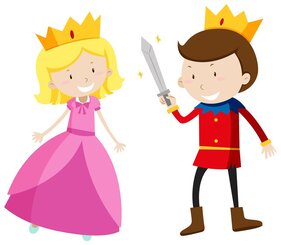 If you create the plot first, you have to reverse engineer the character(s) so that they become involved in it. This generally results in a badly drawn character because the author only pays attention to those elements of their personality that require the character to get involved. You need a warrior to complete a quest, so you create a warrior. But the warrior doesn’t have much of a personality, because they are a stereotype, being dropped into the plot like photoshopping in a stock photo from an image library. The Princess (or the Prince) then falls in love with the warrior (and vice versa) because the author wants them to, not because they have identified any unique qualities that the author created. And then the reader doesn’t find that relationship believable because they can’t see the mutual attraction. If you think about real life, we don’t fall in love with a warrior or a Prince or a traffic warden, we fall in love with a person who happens to be one of those things. I didn’t fall in love with my wife because she was a telephonist (archaic term - look it up). I fell in love with her because she was clever, funny, interesting to talk to and a whole lot more. And it is those sorts of qualities, and others, that your readers have to fall in love with. I don’t know whether we have convinced you that character has to come before plot (feel free to comment below), but we have made our case. But if you are an author considering submitting your MS to us, please know that the most likely reason for us to reject your MS is because we don’t find your character(s) interesting enough to engage our attention. We won’t know if your plot is any good because we haven’t read that far through the MS to find out. Sorry. A couple of other things for you now. Firstly, we have a 9 book sci-fi box set of The Magi series available right now, but you can download the first book for free as a "try before you buy" offer. Just click on the button below to get your copy.
Secondly, if you have enjoyed this blog and want to keep in touch with future blog posts, then the easiest way is to sign up for our newsletter. We promise not to spam you. Just click on the "newsletter" button. Can Anyone Become An Author?  After “What do publishers actually do?” (see previous blogs for answers) the question we get asked most frequently is “Can anyone become an author?” That’s actually quite a big question to ask. It’s a bit like “Can anyone run 100 metres?” While the factual answer may be yes (with caveats about physical constraints), we could add that the vast majority of people will never run that distance faster than Usain Bolt; or even half as fast as Usain Bolt. The same applies to being an author. Anyone who can string words together to make an understandable sentence can, theoretically, write a novel. But it doesn’t mean they can write a novel that actually sells enough copies to make it worth the author’s time and effort writing it. For that you need talent. 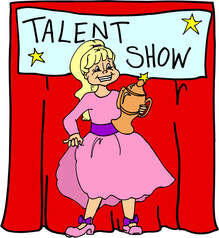 But the good news is that talent can be learned. Did you know that? The “natural talent” that most people are born with will only take them so far. Just because someone has learned to play the violin by the age of 3 doesn’t mean they will ever play the Albert Hall (or Carnegie Hall for my US readers). To be really good at something requires far more. It isn’t going to happen overnight, but if someone has the willpower and the motivation to learn, they can develop the skills necessary to write a book. It might take years of study and practice, but it is achievable. OK, it helps to have some basic skills. A wide vocabulary is an essential. Readers get bored of seeing the same words repeated page after page. They want variety. But a vocabulary is something that can be acquired. All you need to do is learn a new word every day and practice using it in context. That doesn’t sound so hard, does it? "the average person uses only around 20,000 words regularly" 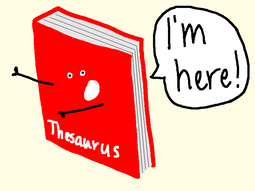 So why do we receive so many submissions that display a very narrow vocabulary? There are 171,146 words in the English language and more are added each year. If you’re an author of historical work there’s are another 47,000 words that are obsolete, but are still available for use. But the average person uses only around 20,000 words regularly. The average 8 year old has a vocabulary of about 10,000 words, so between 8 and adulthood we only learn to use another 10,000 words. Essentially this shows that some authors are in too much of a hurry. They want to tell their story without taking the time to learn the best words to use. But that is self-defeating, because a story that doesn’t grip the reader is one that will never be read. But it’s not just about vocabulary. Children that enter spelling bees have extensive vocabularies, but it doesn’t mean they will ever be good story tellers. It also helps to have a basic grasp of sentence construction and grammar. I'm not going to labour that point too much, because in our view it is better to split an infinitive than to write a clumsy sentence just so you don't have to split an infinitive. But at least learn enough to know that you are splitting an infinitive!  There are many courses available on creative writing. It isn’t our job to advise people which ones to take, because some of them charge fees and we don’t want to steer people into spending money with one organisation rather than another (at least, not without receiving a commission). But we can recommend courses that are free. This one is a good starting point for the would-be author. It’s called Start Writing Fiction and you can sign up for it from anywhere in the world. If you think you have nothing to learn from those sorts of courses, then ask yourself why you are reading this blog in the first place. But what really makes an author, after they have learnt the basics? Practice!  Practice, practice and more practice. And then, when you think you've finished practicing, practice some more. Earlier I mentioned Usain Bolt and his prowess on the running track, but he wasn’t born to greatness. He had some physical advantages, but no more so than many other children. What he did though, was train and train hard; ie, he practiced. No one ever became good at something, be it running, drawing or playing the cello, without practice and the same applies to authors. "And then, when you think you've finished practicing, practice some more." One of the problems with reading great authors is that we see their work at its best. We don’t see the years of practice they have put in to get to that level. The years of attending writing courses, retreats and workshops; the years of scribbling away in corners practicing their skills while everyone else was out having fun. Their book may be in the bookshops, but it didn’t arrive there fully formed at the first attempt. OK, maybe some did, for a lucky few authors, but for the vast majority it is the culmination of years of earlier practice; it may not have been called that, but that is what it was. There are very few authors who have the ability to write the first draft of a book and submit it to a publisher or agent and get it accepted. The authors that do succeed in getting their books published are those that have practiced the art of writing for a considerable period before attempting their first novel. 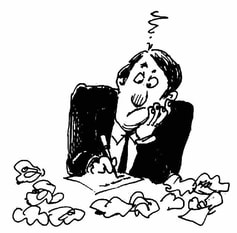 There are a number of ways that can be done, but we would suggest that you start writing just for the fun of it. Pick a subject and construct a story around it. There are plenty of writing prompts available on the internet to get you started. The next thing to try might be writing the same sentences or paragraphs several different ways – especially experimenting with new vocabulary – and seeing which work the best. You would be surprised how the impact of a paragraph can be changed, for better or worse, with just a few minor alterations. There’s no need to write more than a set number of words. You could start with 100, then 500, move up to 1,000 and then head for the dizzy heights of 10,000. If you can’t write a story that makes it to the 10,000 word mark, then it is unlikely that you will be able to write a full-length novel. But there is a market for short stories, so you could concentrate on that. Just as important as practicing is the quality of the practice itself. 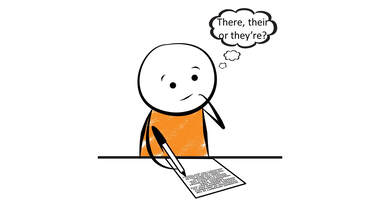 Practicing the stuff that the author finds easy isn’t going to improve their writing. Practicing the stuff that is hard is what brings about improvement. So, if the author hasn’t got an extensive vocabulary, practice allows them to extend it. If they aren’t great at developing believable characters, it is something that can be practiced. Great sports stars don’t spend hours a day practicing the things that come easy to them – they spend hours a day practicing the things that are hard for them. The same applies to any discipline: music, acting, business management, flying aeroplanes – and writing. Research into what creates successful people has demonstrated this time and time again. But practicing by itself doesn’t tell anyone anything. Authors need to know if what they are writing is any good: what is working and what isn’t. That way they can focus their practice on the things that don’t work and build on the things that do. For that they need a network of people who will provide them with honest feedback. "But practicing by itself doesn’t tell anyone anything"  Which is where writers’ groups come in. Most communities have writers’ groups, but you can also join on-line groups. Which is where personality tends to enter the equation. Some people don’t like meeting strangers and some don’t like receiving adverse criticism. I’ll deal with the two things separately. On-line groups help because you don’t actually have to “meet” anyone. But if you can’t discuss writing and put your work forward for discussion, it is unlikely that you will ever get the feedback that tells you where you can improve. And if you don’t get that, you have no way of knowing if your work is good enough for publication. If you are a naturally shy person then it is something you are going to have to overcome if you ever want to develop as a writer. Some people try to work around this by asking their friends and relatives to read their work. Not a good idea. 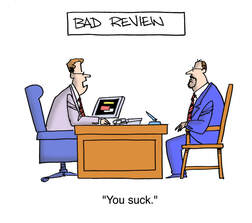 For an author to develop they need a “warts and all” criticism of their work; quality criticism. You are probably not going to get that from friends and family. They love you and they want to help, but their help is usually a hindrance because they will tell you what they think you want to hear, not what you need to hear. You learn the most from your mistakes, not from your successes, but if people won’t tell you about your mistakes, for fear of hurting your feelings, you learn nothing. In short, authors have to seek out the harshest critics. It’s the only way to get the feedback that is the most valuable. It hurts to be told “You suck!”, but it’s better to be told that by someone that you have asked to provide feedback than it is to be told by readers who have paid for your book! Because they certainly won’t pay to read another. Trust us on this. We get flooded with poor quality manuscripts and when we feedback on them, pointing out their flaws, we often get a reply back telling us how the author’s Mum or the author’s partner or the author’s mate down the pub really loved their story, so we must be wrong. If not that, we get very defensive responses trying to explain why the author did things their way. Fair enough – it’s your book, but don’t expect us to agree with you – or your Mum. If you are the sort of person who doesn’t like criticism (and there are many) then it is probable that you won’t be able to work with a publisher anyway. Because it is the publisher’s job to tell you if your book is any good or not, because they can only make money out of good books and every time they publish a book, they are laying their reputation on the line. The publisher will assign an editor to work with the author to get the book ready for publication and if the editor can’t provide critical feedback to the author, the book will never see the light of day.  J K Rowling - allegedly rejected by 12 publishers. J K Rowling - allegedly rejected by 12 publishers. Having a publishing contract doesn’t guarantee an author will be published (did you know that?). Because the terms of the contract will stipulate that the publisher has the final say on whether or not the book is good enough for publication. Which requires the author to accept criticism and make changes if the editor suggests them. I use the verb “suggest” because “tell” sounds a bit blunt, but that’s what the editor is really doing. OK, publishers aren’t perfect and they may not get it right all the time. 12 publishers are rumoured to have turned down Harry Potter before Bloomsbury signed J K Rowling – so those 12 got it wrong. But all publishers know the difference between a stinker and a good book and, sadly, we see too many stinkers. And that’s because so many authors don’t realise that writing a decent story is actually much harder than it looks and it takes years of practice to succeed. Which is a shame because, in most cases, the author could have produced better work if only they had taken the time to learn how to do it properly and then practiced what they learnt. So, consider this: Your book isn’t selling and those few copies that do sell aren’t getting good reviews. Is it the fault of the reader, or the fault of the author? If you think it is the fault of the reader, then it is time to re-think your life choices, particularly the ones relating to being an author. Yes, anyone can become an author, but the successful ones take the time to learn how to be a good author, because no one is going to read a bad author. If you found this blog interesting and/or helpful and you want to make sure you don't miss the next edition, just sign up for our newsletter by clicking the button below. |
AuthorThis blog is compiled and curated by the Selfishgenie publishing team. Archives
November 2024
|
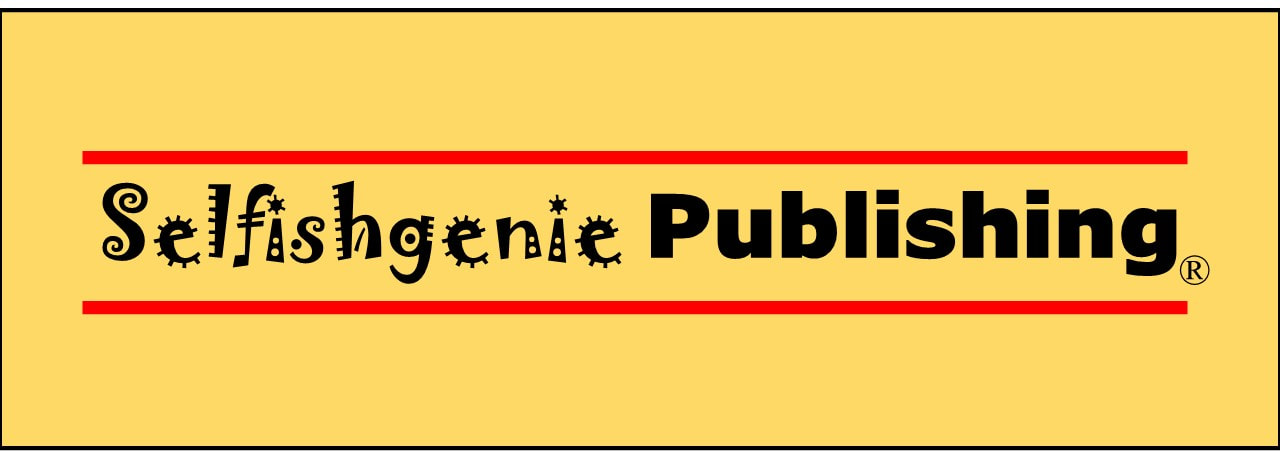
 RSS Feed
RSS Feed